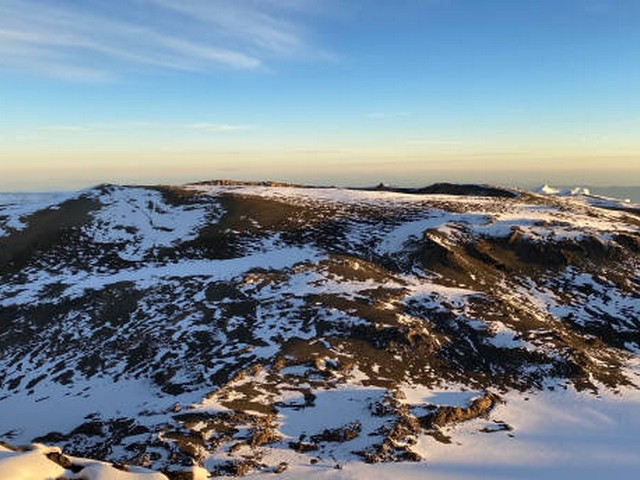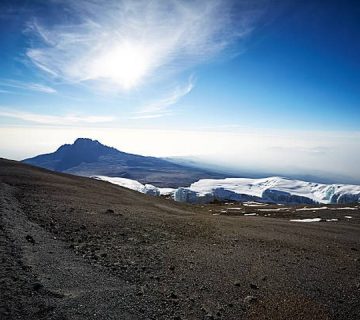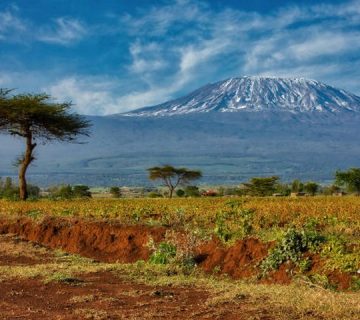Kilimanjaro Eco-tourism and Sustainable Development: A Trek Towards Conservation
Nestled in the heart of Tanzania, Mount Kilimanjaro is not just the highest peak in Africa but a symbol of majestic beauty and natural wonder. At Kilimanjaro Centre for Trekking and Ecotourism (KCTE), we understand that this mountain is more than just a destination; it’s a vibrant ecosystem, an essential part of local heritage, and a beacon for sustainable tourism. In this write-up, we embark on a journey to explore how eco-tourism and sustainable development are intertwined with the future of Kilimanjaro, ensuring that its splendor is preserved for generations to come.
The Essence of Eco-Tourism on Kilimanjaro
Eco-tourism is not a mere buzzword; it’s a commitment to experiencing nature in a way that is both respectful and mindful of ecological and cultural sensitivities. On Kilimanjaro, this concept takes on a special significance. The mountain’s unique biodiversity, including its alpine flora and fauna, and its cultural significance to the Chagga people, demands a thoughtful approach to tourism.
Preserving Nature’s Splendor
At KCTE, our eco-tourism initiatives focus on minimizing the environmental impact of each trek. We adhere strictly to the principles of ‘Leave No Trace’, ensuring that the paths, whether through the rainforest or up the rocky terrain, are left pristine. By choosing eco-friendly routes and limiting the number of visitors in certain sensitive areas, we help maintain the natural habitat and reduce ecological footprints.
Supporting Local Communities
Sustainable development is synonymous with community empowerment. Our tours are designed to ensure that the local communities around Kilimanjaro benefit directly from every hike that sets off. From employing local guides and porters to sourcing supplies from local vendors, we ensure that the economic benefits of tourism are distributed widely.
Innovative Practices in Sustainable Mountain Tourism
Sustainability on Kilimanjaro is not just about conservation but also about innovative practices that enhance the trekking experience while ensuring the mountain’s health. Our initiatives include:
Renewable Energy Solutions
We utilize solar energy for powering our campsites, reducing reliance on non-renewable power sources and decreasing our carbon footprint. This not only helps in conserving the environment but also demonstrates the potential of renewable energy in remote areas.
Waste Management Systems
Managing waste efficiently is crucial on a trek. We have developed a robust waste management system which includes recycling and composting, significantly reducing the amount of litter and ensuring the trails and campsites are clean.
Water Conservation Techniques
Water is a precious resource, especially in mountainous areas. Our water conservation techniques include rainwater harvesting and the use of water filtration systems to minimize the use of plastic water bottles.
The Role of Technology in Eco-tourism
Leveraging technology, KCTE enhances the sustainable trekking experience. Our online platforms provide detailed information about eco-tourism practices, helping trekkers prepare adequately for their journey. GPS tracking systems ensure safety while minimizing the need to mark physical paths on the mountain.
Educational Outreach
Through our website and social media, we educate visitors about the importance of sustainability and eco-tourism. Interactive blogs, videos, and virtual tours offer insights into the ecological and cultural significance of Kilimanjaro, fostering a deeper appreciation and responsible trekking practices.
Engaging with Kilimanjaro: The KCTE Experience
Choosing KCTE for your Kilimanjaro expedition means opting for an experience that respects and preserves the mountain’s natural beauty and cultural heritage. Our guided treks are more than just climbs; they are immersive educational experiences that highlight the importance of sustainable practices.
Tailored Eco-friendly Packages
Our trekking packages are designed to cater to various fitness levels and preferences, all while adhering to eco-tourism principles. Whether you are a seasoned climber or a first-time trekker, our packages provide a comprehensive, environmentally friendly approach to experiencing Kilimanjaro.
Community Interaction
Experience the warm hospitality of the Chagga people through cultural tours and community visits arranged by KCTE. These interactions provide a firsthand look at the local culture and the community’s efforts in conservation.
Call to Action: Join Us on the Journey
Embracing eco-tourism is essential for the conservation of our planet’s treasures like Kilimanjaro. At KCTE, we are committed to leading the charge in sustainable tourism and offering experiences that are not only unforgettable but also responsible.
Book your Kilimanjaro climbing adventure with Kilimanjaro Centre for Trekking and Ecotourism today, and be a part of this magnificent trek towards conservation. Together, let’s step up for sustainability and ensure that the beauty of Kilimanjaro endures for ages to come!
FAQs: Kilimanjaro Eco-Tourism and Sustainable Development
What is eco-tourism?
Eco-tourism involves responsible travel to natural areas, conserving the environment, and improving the well-being of the local people.
Why choose KCTE for your Kilimanjaro trek?
KCTE is committed to sustainable practices, including minimizing environmental impact, supporting local communities, and providing educational experiences about eco-tourism.
How does KCTE contribute to sustainable development?
KCTE employs local staff, uses renewable energy, implements effective waste management, and supports local conservation efforts, thereby contributing to sustainable development around Kilimanjaro.
Can eco-tourism on Kilimanjaro make a difference?
Absolutely! Eco-tourism promotes environmental awareness, supports local economies, and helps preserve the cultural and natural heritage of the area.
Embark on a journey of discovery, challenge, and beauty. Protecting Kilimanjaro today ensures that future generations can also experience its majestic allure. Join us at KCTE for a trek that goes beyond the ordinary, into the heart of sustainability and environmental stewardship.




